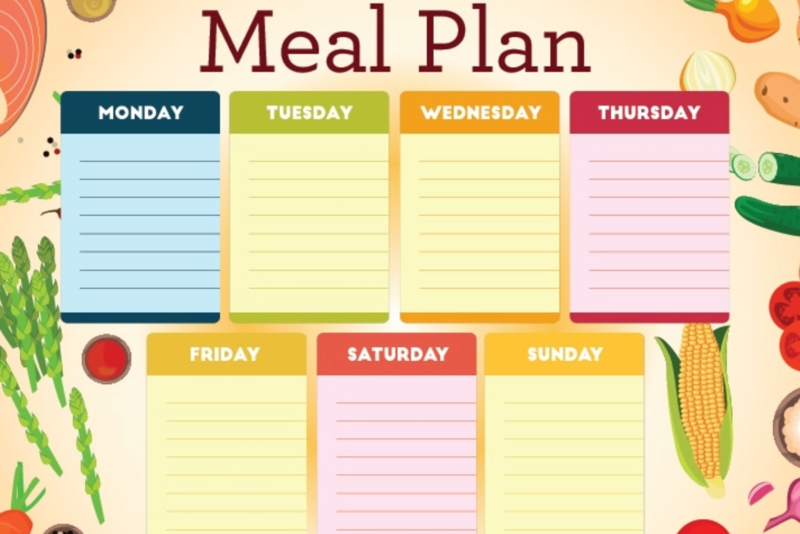News
7 Tips to Successful Meal Planning

Eating healthy doesn’t have to be complicated, and with a few key tips, advance planning can help ease the stress of what to eat this week.
“We all tend to make poor choices with our food intake when we are deciding what to eat on-the-fly,” said Dr. Eliza Klearman, Naturopathic Doctor and functional medicine provider at Vail Health Behavioral Health. “When we are hungry, tired, and rushed, we are going to opt for foods that are quick and almost always, not healthy.”
Here are 7 tips to to successful meal planning:
- Keep It Simple
- Eat a very simple breakfast every day, like yogurt, a smoothie or BaEgg.
- Keep lunches simple too by making enough dinner so that there are leftovers for lunch the next day. You can keep tuna, sardines, hard boiled eggs, grilled chicken breast, steak, or smoked or canned salmon on hand and pair this with a variety of raw vegetables that you like to eat for a quick lunch.
- Focus your meal planning primarily on dinners. Find recipes on blogs or in cookbooks that are 30-minute meals.
- Tip: a protein and a vegetable make a great meal!
- Have Go-To Meals
- Have a list of dinners that you are familiar enough with that you don’t need recipes. Perhaps grill a protein and add a side salad.
- There are an abundance of 30-minute meal ideas online.
- Check Your Schedule
- When planning out the week, be realistic about when you might eat out based on what your family calendar has going on.
- Base Your Grocery List on Your Recipes
- Write your recipes on one side of a piece of paper and your grocery shopping list on the other side for quick reference. This way you have all your ingredients on hand and you minimize food waste.
- Shop Your Own Pantry First
- Using your recipe/grocery list, check your pantry and cross off ingredients you already have on-hand.
- Loosely Assign Each Dinner Meal to a Night of the Week
- You don’t have to make each dinner in advance. Instead plan ahead and have the ingredients prepped for faster cooking night-of. Ex: defrost your meat in time for dinner.
- Prep Veggies and Fruits
- When you get home from the store, prepare all of the fresh, raw vegetables for lunch and snacks and put them into a large glass container.
- Wash fruits and put what can be stored at room temperature on the counter for easy grabbing.
- By making fruits and vegetables visible – they look so pretty sitting there in plain view- you will be more likely to actually eat them!
More News
-
New!
More

The Heart of It All: How Cardiovascular Health Shapes Longevity
Most of us know a healthy heart will increase our chances for a long and vital life, but how many of us truly understand how to live for a healthy heart? According to the American Heart Association, heart disease remains the number one cause of death, for both men and women, in the United States.
-
New!
More

GLP-1s and Your Health Journey: What You Need to Know
Interest in GLP-1 agonist medications, once used almost exclusively for diabetes, is soaring. Now widely referred to as weight loss injections, drugs like semaglutide (Ozempic, Wegovy) and tirzepatide (Mounjaro, Zepbound) are ubiquitous in celebrity chatter, social media and everyday patient conversations. But as demand grows, it’s increasingly important to separate hype from reality. Who qualifies for these drugs under FDA guidelines? When are they helpful? And when might carefully supported lifestyle changes offer a safer or more sustainable path?
-
New!
More

Back on the Slopes: How to Recover Physically and Mentally After a Ski or Snowboard Injury
Living in a ski town, injury is inevitable. Recovery isn’t just about regaining strength, it’s about building trust in your body. The best path back to skiing blends physical training with mental conditioning, patience with persistence. With the expert teams at Vail Health - from Howard Head Sports Medicine to Vail Health Behavioral Health - recovery is more than healing; it’s coming back stronger, smarter and more confident than before.





